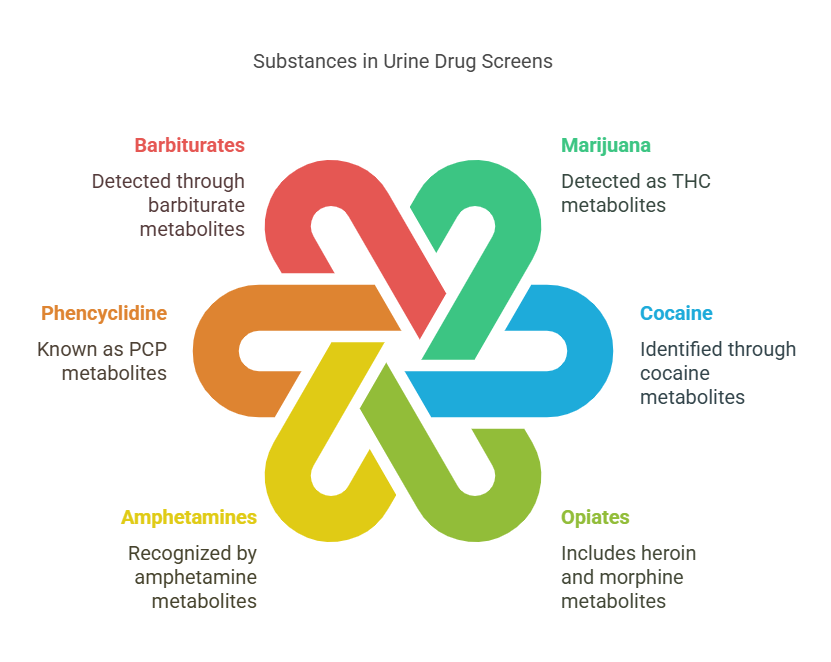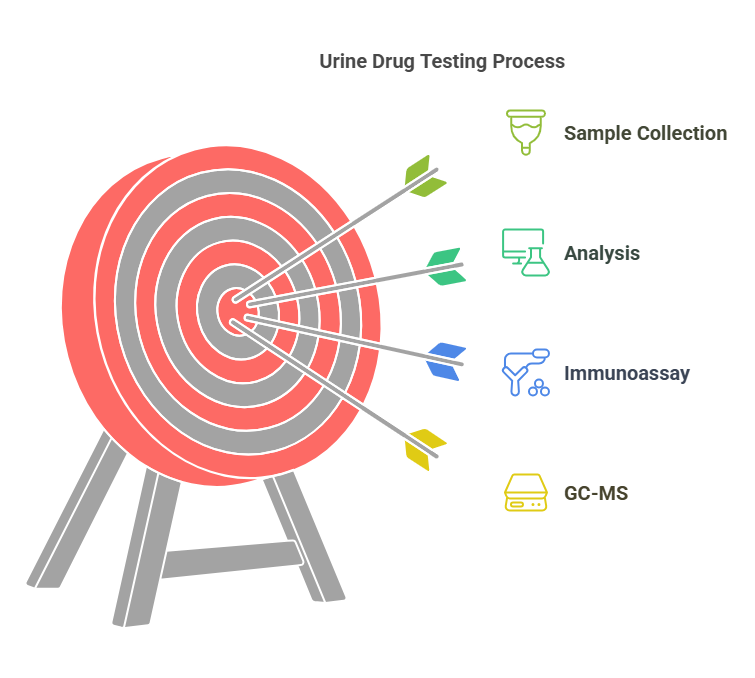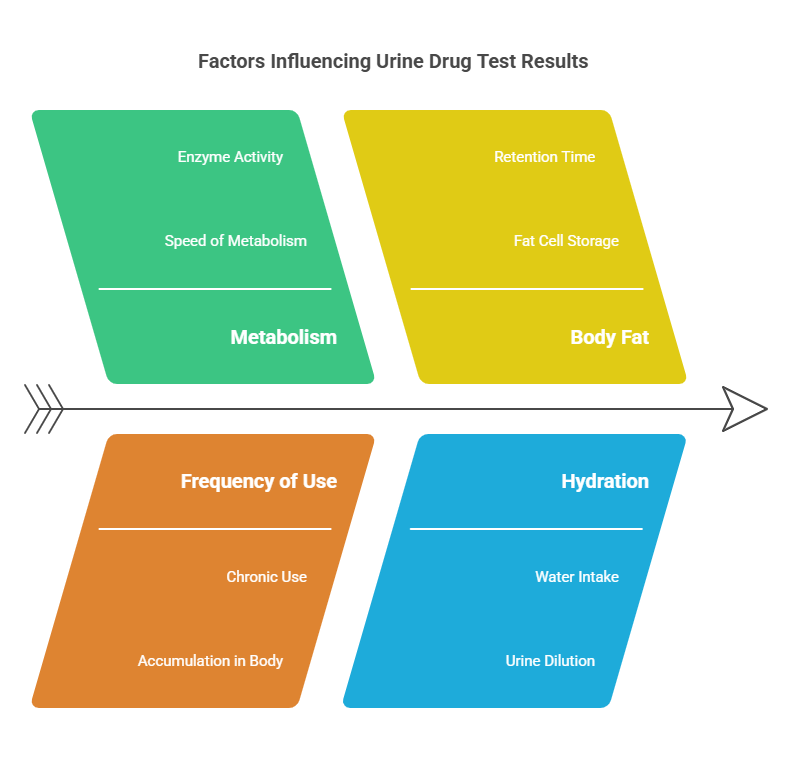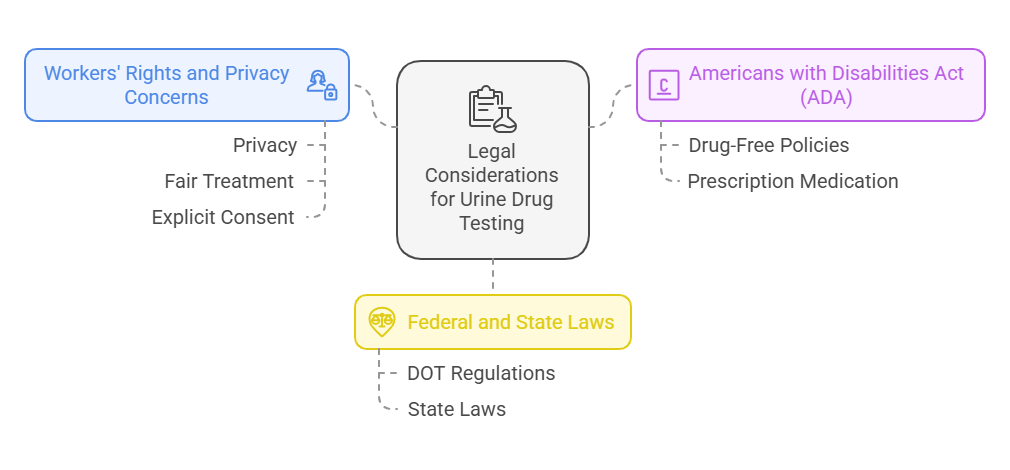Can a Urine Drug Test Determine the Amount Consumed?

Understanding Urine Drug Tests and Their Purpose
Urine drug test is a common method used to detect the presence of illegal drugs or other substances in a person’s system. It is used by various sectors, including employers, law enforcement, and medical professionals, to ensure safety, compliance, and health. This method is favored because it is relatively inexpensive, non-invasive, and easy to administer.
Most commonly, urine drug tests are used by employers to screen potential employees, especially in industries that require a drug-free environment or have safety-sensitive positions. They are also frequently used in law enforcement settings (e.g., roadside sobriety checkpoints or post-accident testing) and in medical contexts, where a doctor may want to monitor substance use.
The substances typically tested for in urine drug screens include:

- Marijuana (THC)
- Cocaine
- Opiates (e.g., heroin, morphine)
- Amphetamines
- Phencyclidine (PCP)
- Barbiturates
- Benzodiazepines
- Methadone
Each of these substances can be identified through their specific metabolites, which are compounds the body produces after metabolizing the drug.
Can a Urine Drug Test Show How Much You Take?
One common misconception about urine drug testing is that it can provide a detailed analysis of how much of a drug someone has consumed. However, urine tests do not measure the exact quantity of a substance taken. Instead, they detect metabolites, which are byproducts of the body’s processing of the drug.
When you consume a drug, your body breaks it down, and these metabolites are eventually excreted in urine. A standard urine drug test looks for the presence of these metabolites, not the quantity of the original substance. The test typically reports whether a substance is present in the urine sample above a certain threshold, indicating that drug use has occurred. However, it does not give an exact measurement of how much of the substance was ingested.
In essence, while urine tests can tell you if a substance has been used and when it was last used (based on detection windows), they cannot provide specific details about the quantity of the drug consumed.
How Does a Urine Drug Test Work?

Urine drug tests typically involve two stages:
- Sample Collection: The individual provides a urine sample in a controlled environment, typically at a testing facility. In many cases, the sample is observed to ensure its authenticity.
- Analysis: The urine sample is then sent to a laboratory, where it is analyzed using different testing methods. Two common techniques used in urine drug testing are:
- Immunoassay: This is the initial screening method, which uses antibodies to detect specific metabolites in the urine. It’s a fast and cost-effective method, but it can sometimes produce false positives.
- Gas Chromatography-Mass Spectrometry (GC-MS): This is a more accurate and detailed method used to confirm results from the immunoassay test. GC-MS can identify the exact metabolites present and confirm whether they fall above the threshold for a positive result.
Both methods are designed to detect the metabolites of drugs rather than the drugs themselves, and they focus on the concentration of those metabolites rather than the amount of drug ingested.
Factors That Influence Drug Test Results

Several factors can affect the results of a urine drug test, including:
- Metabolism: The speed at which an individual metabolizes drugs can vary. Faster metabolisms may process and excrete substances more quickly, leading to lower concentrations of metabolites in urine.
- Frequency of Use: Chronic or heavy drug use can result in higher concentrations of metabolites in the urine due to the accumulation of the substance in the body over time.
- Body Fat: Some substances, like marijuana (THC), are stored in fat cells. People with higher body fat percentages may retain these substances for longer periods, leading to detectable metabolites even after the effects of the drug have worn off.
- Hydration: The more water someone drinks, the more diluted their urine becomes. Diluted urine can lower the concentration of metabolites, potentially leading to false negatives or inconclusive results.
- Health Status: A person’s overall health can affect how their body processes drugs. Those with liver or kidney problems may have altered drug metabolism, leading to different levels of metabolites in their urine.
Understanding these factors is important because they can influence the interpretation of test results and help explain variations in the concentration of metabolites detected in a urine sample.
What Does a Urine Drug Test Actually Measure?
A urine drug test measures the presence of specific metabolites of drugs in the urine. The test doesn’t measure the quantity of the drug itself, but rather how much of its byproducts are present after the body processes the drug. This provides insight into whether a person has used a certain substance recently.
Some tests can measure the concentration of these metabolites, which can indicate whether the person is a chronic user or an occasional user. However, it still doesn’t give a precise amount of the drug taken. For example, a higher concentration of metabolites might suggest heavier or more frequent use, but it won’t pinpoint how much of the drug was consumed in terms of weight or dosage.
Urine tests are often used to detect drugs like marijuana, cocaine, opiates, amphetamines, and others. But, even for substances like marijuana, which can remain in the system longer for habitual users, the test only shows the presence of metabolites, not the quantity or dosage.
Can Urine Tests Be Used to Determine Frequency of Use?
While urine drug tests cannot provide exact measurements of how much drug was taken, they can provide some insight into the frequency of use. For instance:
- Occasional Users: A person who uses a drug infrequently may have metabolites in their urine for a shorter period. For many drugs, occasional users may test negative after a few days or a week.
- Chronic or Heavy Users: For habitual users, metabolites can remain in the urine for much longer. This is especially true for substances like marijuana (THC), which can be detected in the system for weeks after use in chronic users.
While the test results may show whether someone is a frequent or infrequent user, they still won’t tell you the exact amount of the substance consumed. The concentration of metabolites can suggest that a person has used drugs more recently or more frequently, but it cannot determine how much was ingested at any given time.
Our Services at Exact Background Checks
At Exact Background Checks, we provide comprehensive drug testing services to help employers make informed hiring decisions. Our drug testing procedures are compliant with federal and state regulations, and we offer services for pre-employment, random, and post-accident testing. We understand the importance of accurate and lawful drug testing, which is why our protocols are designed to ensure high-quality, reliable results.
We assist employers in maintaining a safe and productive work environment, ensuring that drug use doesn’t jeopardize workplace safety. Additionally, our drug tests are conducted with the utmost respect for privacy and confidentiality, in line with all relevant regulations.
Interpreting the Results: What Do High Concentrations Mean?
When a urine drug test shows a high concentration of metabolites, it typically suggests that the person has used the drug recently or in higher amounts. However, it’s important to remember that while higher concentrations can indicate more significant use, they don’t directly correlate to the exact dosage or amount of the substance consumed.
For example:
- Marijuana (THC): Chronic users may have very high levels of THC metabolites in their urine for weeks after their last use.
- Cocaine: This metabolite generally clears the system much quicker, with high concentrations potentially indicating more recent or frequent use.
- Opiates: For those who use opiates habitually, metabolites can accumulate in the urine, though the levels depend on the type of opiate and the individual’s metabolism.
A diluted urine sample can also affect test results. A person who drinks excessive water may have urine that is too diluted, potentially resulting in a false negative. If a test comes back as diluted, additional steps may be taken, such as a retest or further investigation into the person’s history of drug use.
Here’s a table summarizing some common drug metabolites and their typical detection windows:
| Substance | Metabolite | Typical Detection Window |
|---|---|---|
| Marijuana (THC) | THC-COOH | 3-30 days (up to 90 days in chronic users) |
| Cocaine | Benzoylecgonine (BE) | 2-4 days |
| Opiates (Heroin, Morphine) | Morphine, Codeine | 1-3 days |
| Amphetamines | Amphetamine, Methamphetamine | 1-3 days |
| Benzodiazepines | Oxazepam, Temazepam | 1-7 days |
| Methadone | Methadone | 3-7 days |
Urine drug tests can provide valuable information about the presence of drugs and metabolites in the system, but they are not designed to measure the exact quantity of the substance taken. They can suggest usage patterns based on metabolite levels, which may reflect recent or frequent use, but they are not a definitive indicator of how much was consumed.
Legal Considerations for Urine Drug Testing

Urine drug testing is a widely used method for screening potential employees, and its application is regulated by various legal standards and guidelines. These regulations are in place to protect workers’ rights, ensure workplace safety, and maintain fairness in the hiring process.
1. Workers’ Rights and Privacy Concerns:
In the context of urine drug testing, workers have rights to privacy and fair treatment. Employers must follow legal procedures to ensure the confidentiality of test results and avoid discrimination based on drug use. Employers cannot disclose drug test results to unauthorized parties or use them as the sole basis for employment decisions unless specific conditions are met.
In many regions, it is required that employees give explicit consent before undergoing drug testing. This ensures that individuals are aware of and agree to the test as a part of the employment process.
2. The Americans with Disabilities Act (ADA):
The Americans with Disabilities Act (ADA) prohibits discrimination based on disabilities. However, the ADA allows employers to implement drug-free workplace policies and conduct drug testing to ensure safety and productivity. If a person is taking prescription medication that could impact the drug test, employers must ensure that the testing process is handled carefully, considering both medical and legal factors.
Under the ADA, individuals who have a disability and are taking prescribed medication may need to inform their employer before undergoing drug testing to ensure that they are not unfairly penalized for legal medication use.
3. Federal and State Laws:
The laws governing drug testing vary by jurisdiction. For example:
- DOT (Department of Transportation) Regulations: Specific regulations apply to workers in the transportation industry, where drug testing is strictly regulated for safety reasons.
- State Laws: Some states have more relaxed laws regarding drug testing, particularly in states where recreational marijuana use is legal. However, employers may still require drug testing for certain positions, especially those that involve safety-sensitive tasks.
Employers must ensure they are compliant with both federal and state regulations regarding drug testing. This includes maintaining proper records, ensuring the confidentiality of test results, and making sure the drug testing policies are clearly communicated to employees.
FAQs
What substances are typically tested for in a urine drug screen, and what do these tests actually measure?
Substances include:
- Marijuana (THC)
- Cocaine
- Opiates
- Amphetamines
- PCP
- Barbiturates
- Benzodiazepines
- Methadone
Urine tests measure the presence of drug metabolites, not the exact quantity of the drug consumed.
Can a urine drug test show how much of a drug someone has taken, and how does the test work?
No, urine tests do not measure the exact quantity. They detect metabolites above a certain threshold.
How it works:
- Sample Collection: Urine sample provided.
- Analysis: Immunoassay (initial screening) and GC-MS (confirmation).
What factors can influence the results of a urine drug test?
Factors include:
- Metabolism
- Frequency of use
- Body fat
- Hydration
- Health status
Can urine tests be used to determine the frequency of drug use?
Yes, to some extent.
- Occasional Users: Metabolites present for a shorter period.
- Chronic Users: Metabolites can remain for much longer, especially for substances like THC.
While it indicates frequency, it doesn't give the exact amount consumed.
What are the legal considerations for urine drug testing, particularly regarding workers' rights and privacy?
Legal considerations:
- Workers' Rights and Privacy: Consent, confidentiality, non-discrimination.
- Americans with Disabilities Act (ADA): Protection for prescription medication use.
- Federal and State Laws: DOT regulations, state-specific laws, compliance.
Conclusion
In conclusion, urine drug tests provide valuable information about whether a person has used drugs recently or frequently, but they do not measure the exact quantity of the substances consumed. These tests detect the presence of drug metabolites and can indicate the frequency and recency of use, but they cannot specify dosages or amounts.
The legal framework around urine drug testing ensures that workers’ rights are protected and that testing is done in compliance with federal and state regulations. Understanding the limitations of urine drug tests and the legal implications is crucial for both employers and employees.
Employers should be aware of how to interpret test results properly, focusing on compliance and fairness. For accurate, reliable, and legally compliant drug testing services, Exact Background Checks offers comprehensive solutions that help employers maintain a safe and drug-free workplace.
By following best practices in drug testing and staying informed about the legal landscape, both employers and applicants can ensure that their rights are protected throughout the hiring process.



